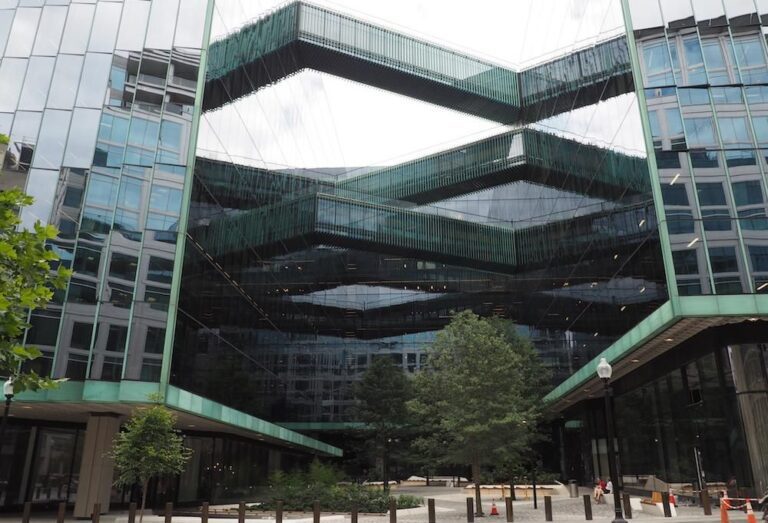Carr Properties Restructures Amid Major Stake Sale
Washington, D.C.’s commercial real estate landscape is facing a significant shift as Carr Properties prepares to divest a considerable portion of its holdings. This comes in light of J.P. Morgan Asset Management’s decision to sell its stake in the firm, a relationship that has persisted since 2007.
Sale Agreement Details
J.P. Morgan’s fund reached an agreement earlier this year to exchange its 35.5% equity in Carr Properties for three of the developer’s office properties, which they will acquire debt-free. This arrangement was established through a non-binding memorandum of understanding, as documented in recent investor filings from Alony Hetz, a publicly traded Israeli firm that is another significant investor in Carr.
Shift in Investor Dynamics
While J.P. Morgan will exit Carr’s ownership structure as part of this transaction, Alony Hetz plans to deepen its involvement by infusing an additional $100 million in equity and increasing its stake from 47.8% to 77.2%. The injection of capital is intended to facilitate the J.P. Morgan redemption and support further business growth, focusing on new developments.
Strategic Portfolio Management
In addition to the asset exchange with J.P. Morgan, Carr Properties is also actively selling and refinancing various assets to address impending debt maturities. As of March, Carr was reportedly looking to offload two properties for a projected total of $100 million to $110 million and refinance four others with maturing loans set for 2026.
The restructuring is poised to alter the ownership dynamics of Carr Properties, a company steeped in a 140-year legacy of development in the heart of D.C. Its existing portfolio consists of numerous significant assets, with a notable mention of its trophy properties that the firm aims to keep, including:
- The Midtown Center, which serves as the headquarters for Fannie Mae
- One Congress in Boston
- The Wilson in Bethesda
- The building at 1700 New York Ave. NW in D.C.
Market Conditions and Future Outlook
Industry experts, including John Kevill, a seasoned D.C. broker, note that the unique structure of this transaction reflects the current state of the Washington, D.C. office market, where property values are perceived to be lower than usual. Kevill remarked that such asset trading within a partnership as it dissolves is atypical and indicates a reluctance to realize cash values when not absolutely necessary.
Recent Activity and Challenges
This portfolio reconfiguration comes as Carr influences more than just ownership; they continue to manage and adjust their assets. Recently, Carr sold a Downtown D.C. office building to Beacon Capital Partners and is also marketing its headquarters at 1615 L St. NW after defaulting on a $134 million loan due for repayment in September 2023.
Notably, in November, Carr relinquished a different property on Pennsylvania Ave. at a significantly reduced price, illustrating a broader trend of asset depreciation amidst changing market conditions.
The Legacy of Carr Properties
Founded in 1994 by Oliver Carr III, Carr Properties inherits a storied real estate legacy marked by its founder’s father, Oliver T. Carr Jr., who significantly influenced D.C.’s real estate landscape. The Carr family has developed numerous notable buildings throughout Washington, making their name synonymous with D.C.’s architectural history.
Carr III has noted that despite recent challenges, including the impact of the COVID-19 pandemic on office spaces, the firm is adapting by diversifying its holdings. Currently, the company is engaged in two multifamily developments set for completion between 2026 and 2028, highlighting a strategic pivot towards residential development.
In conclusion, Carr Properties is navigating a transformative phase, with strategic asset management and investor restructuring aimed at securing its future in a shifting market landscape.
Bisnow/Emily Wishingrad
Carr Properties’ Signal House building in D.C.’s Union Market neighborhood.
